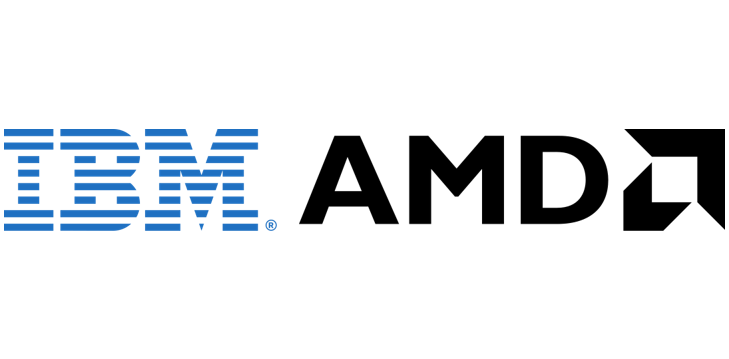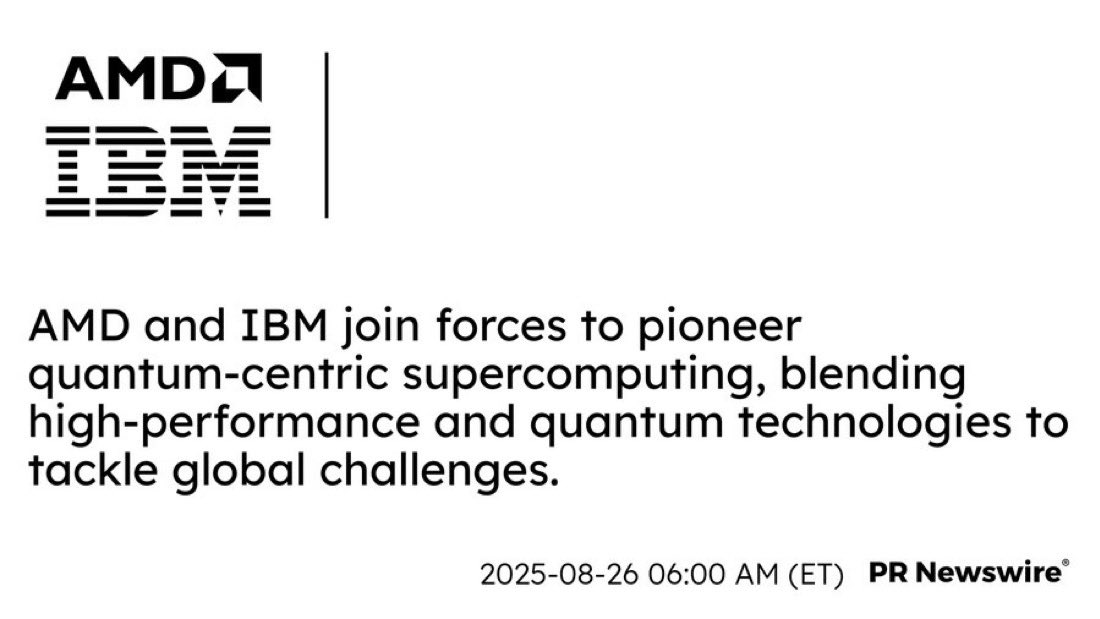
On August 26, AMD and IBM officially announced they're partnering on "quantum-centric supercomputing" in a strategic collaboration. Look, I've covered enough quantum announcements to be skeptical, but this one actually seems different.
Why This Partnership Makes Sense (For Once)
Unlike most quantum partnerships that are basically research collaborations disguised as product announcements, this one combines two companies that actually ship hardware people buy.

AMD makes the CPUs and GPUs sitting in data centers right now. IBM has been grinding away at quantum hardware for years - they've got actual quantum systems you can access through their quantum cloud platform, not just whitepapers. Unlike other quantum companies, IBM provides real access to quantum processing units. IBM's quantum research has been documented in hundreds of peer-reviewed papers and their quantum roadmap shows concrete progress toward utility. Put them together and you get something that might work in the real world instead of just in PowerPoint presentations.
The Hybrid Approach: Finally Some Sanity
Here's what gives me hope: they're not promising pure quantum magic. They're building hybrid systems where quantum processors handle specific problems while AMD's chips do the heavy lifting for everything else.

This makes actual sense. Pure quantum computers are great at specific mathematical problems but suck at pretty much everything else. You need classical processors to run the operating system, handle I/O, manage memory, and do all the boring shit that makes computers useful.
Most quantum startups ignore this reality and promise fantasy quantum computers that will solve every problem. AMD and IBM are being honest about limitations, which is refreshing in an industry full of bullshit.
But Let's Be Realistic About Timeline
Both companies are being vague about when we'll see actual products. The press release talks about "exploring integration" and "developing architectures" - that's corporate speak for "we're still figuring this out." Industry analysts are calling this partnership significant but timeline remains unclear.

Don't expect to buy an AMD-IBM quantum system on Newegg next month. We're probably looking at 2-3 years minimum before anything ships, and that's if everything goes perfectly.
Why This Could Actually Work
- AMD has manufacturing scale - They're not some quantum startup that'll run out of money in 18 months
- IBM has real quantum hardware - Their quantum systems are already running in data centers
- Hybrid approach is practical - They're not promising impossible pure quantum miracles
- Both companies ship products - Not just research labs publishing papers
The Competition Response
This puts pressure on the big quantum players - Google, Microsoft Azure Quantum, and Amazon Braket - to stop treating quantum as a research project and start shipping something customers can actually use. The quantum computing race just got more competitive, with analysts predicting significant market growth by 2030.

Google's been chasing quantum supremacy benchmarks that don't solve real problems. Microsoft's been building quantum development tools for hardware that doesn't exist yet. Amazon just resells other people's quantum systems.
AMD-IBM might force them to get serious about hybrid systems that work today instead of pure quantum systems that might work someday.
Bottom Line: Cautiously Optimistic
I've seen enough quantum partnerships fail to be skeptical of any announcement. But this one combines companies with real products, takes a practical hybrid approach, and doesn't promise miracle breakthroughs.
Will it work? Maybe. Will it ship actual products normal people can use? Probably not for a few years. But it's the first quantum partnership that doesn't make me want to roll my eyes, so that's progress.
Just don't expect quantum-accelerated gaming rigs anytime soon. This is enterprise hardware for companies with million-dollar compute budgets, not consumer products for building your next PC. For more context on quantum computing's current limitations, check out MIT's quantum computing explainer.